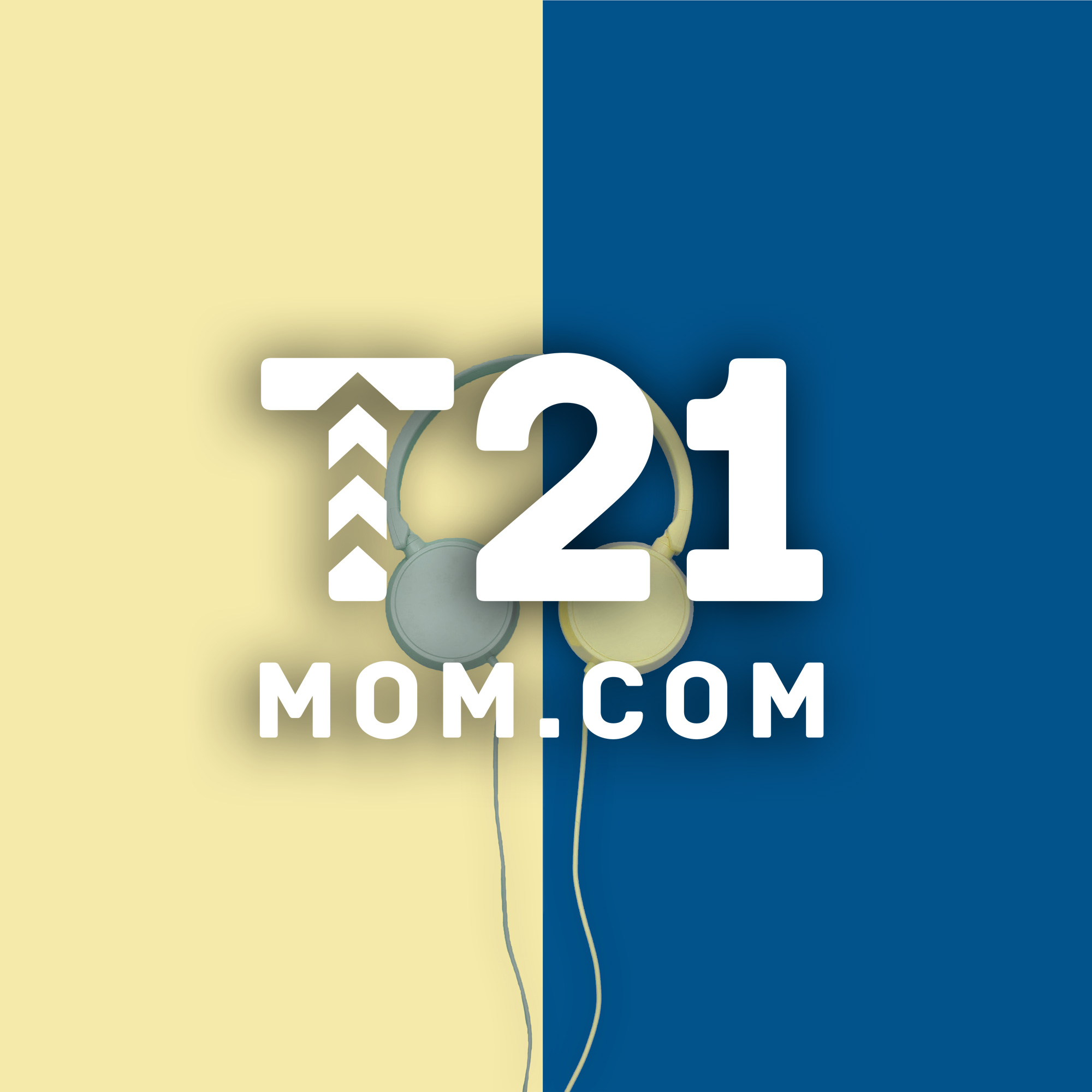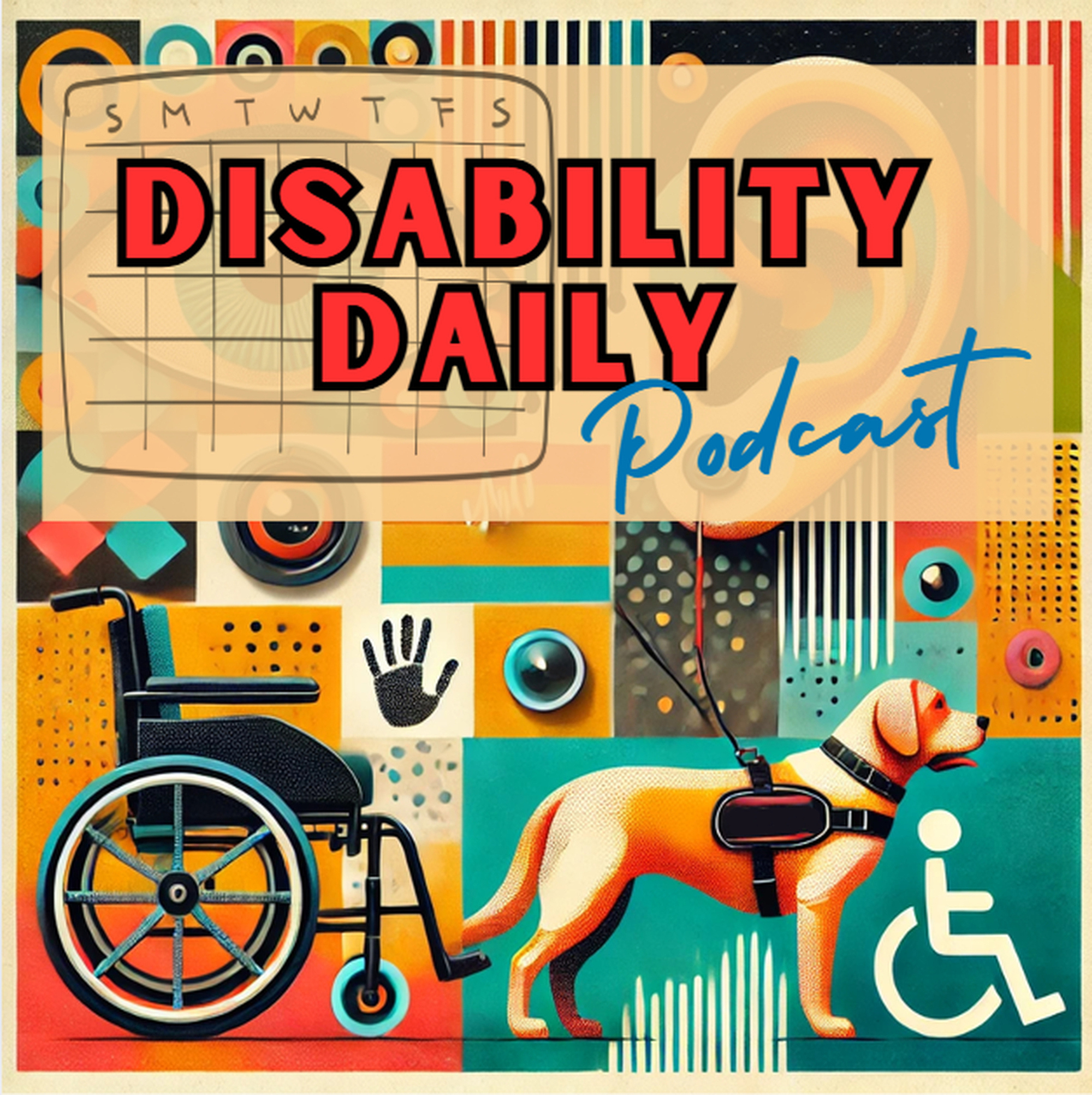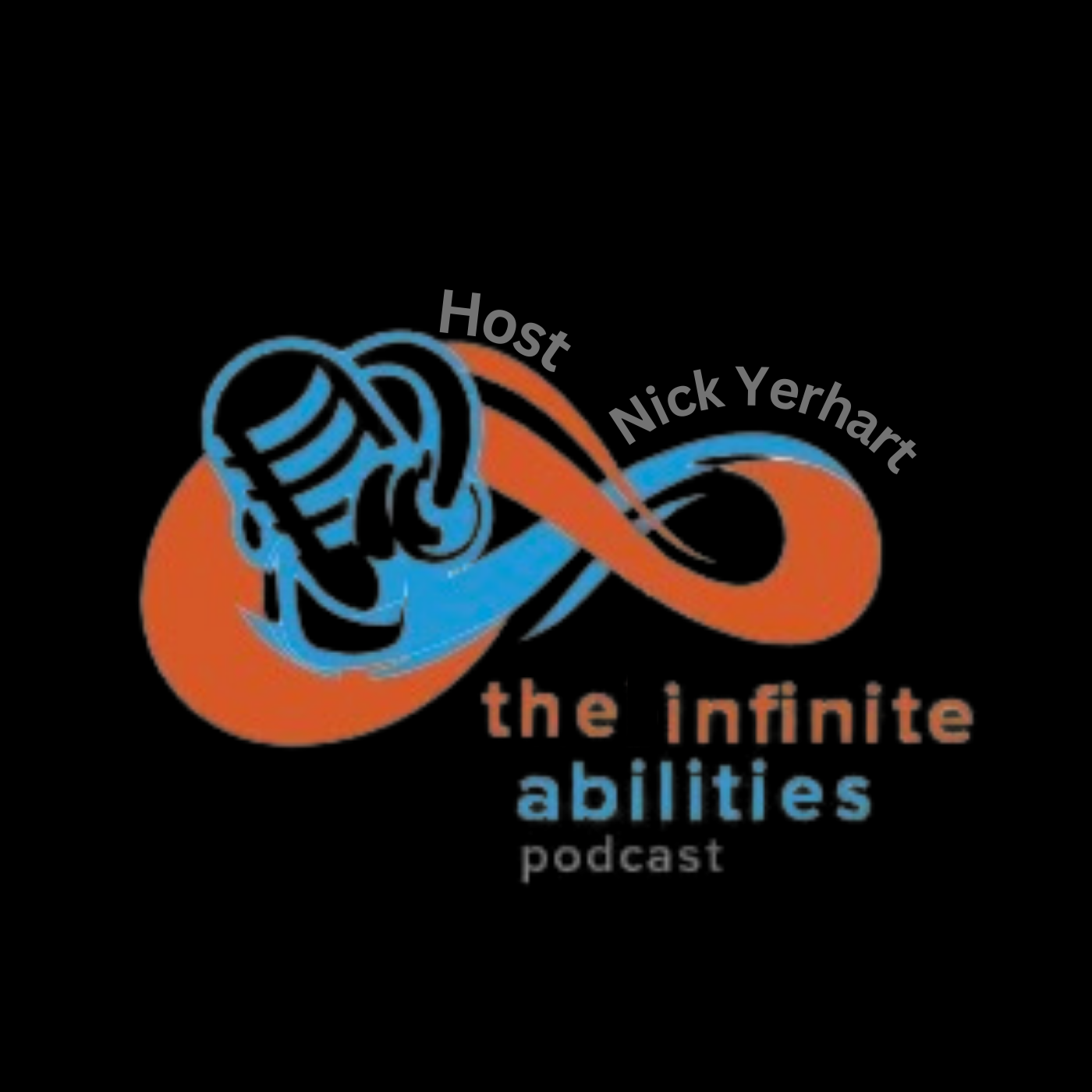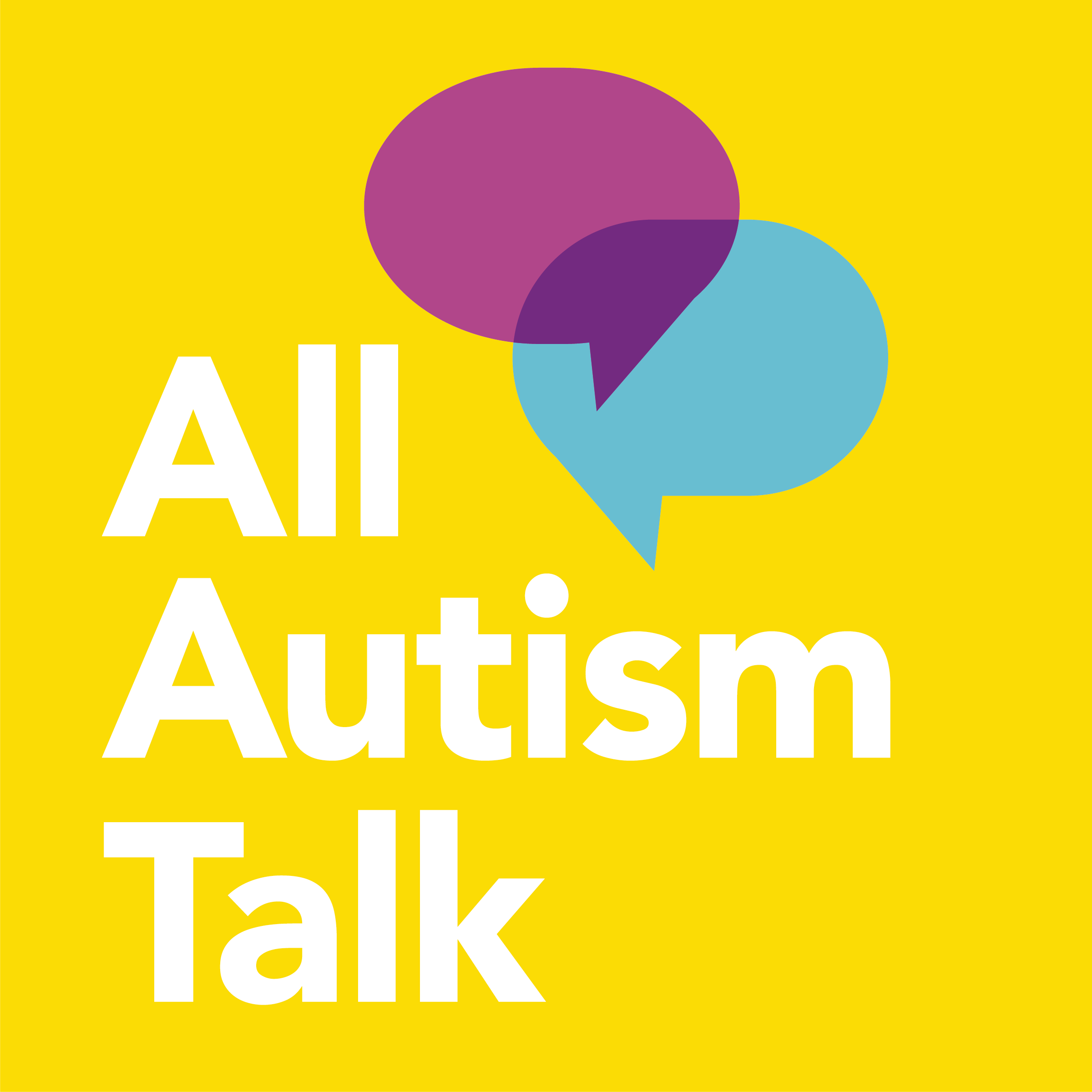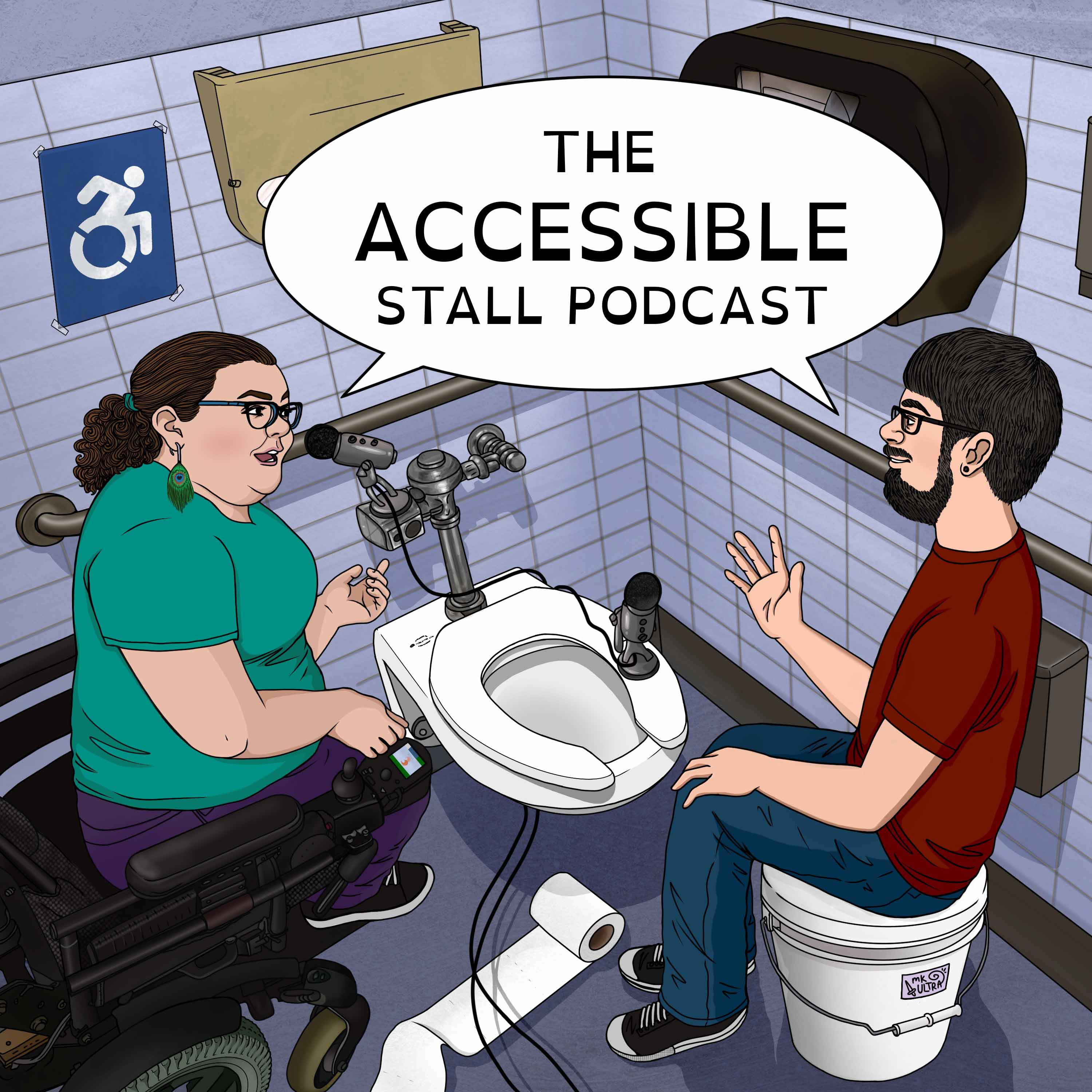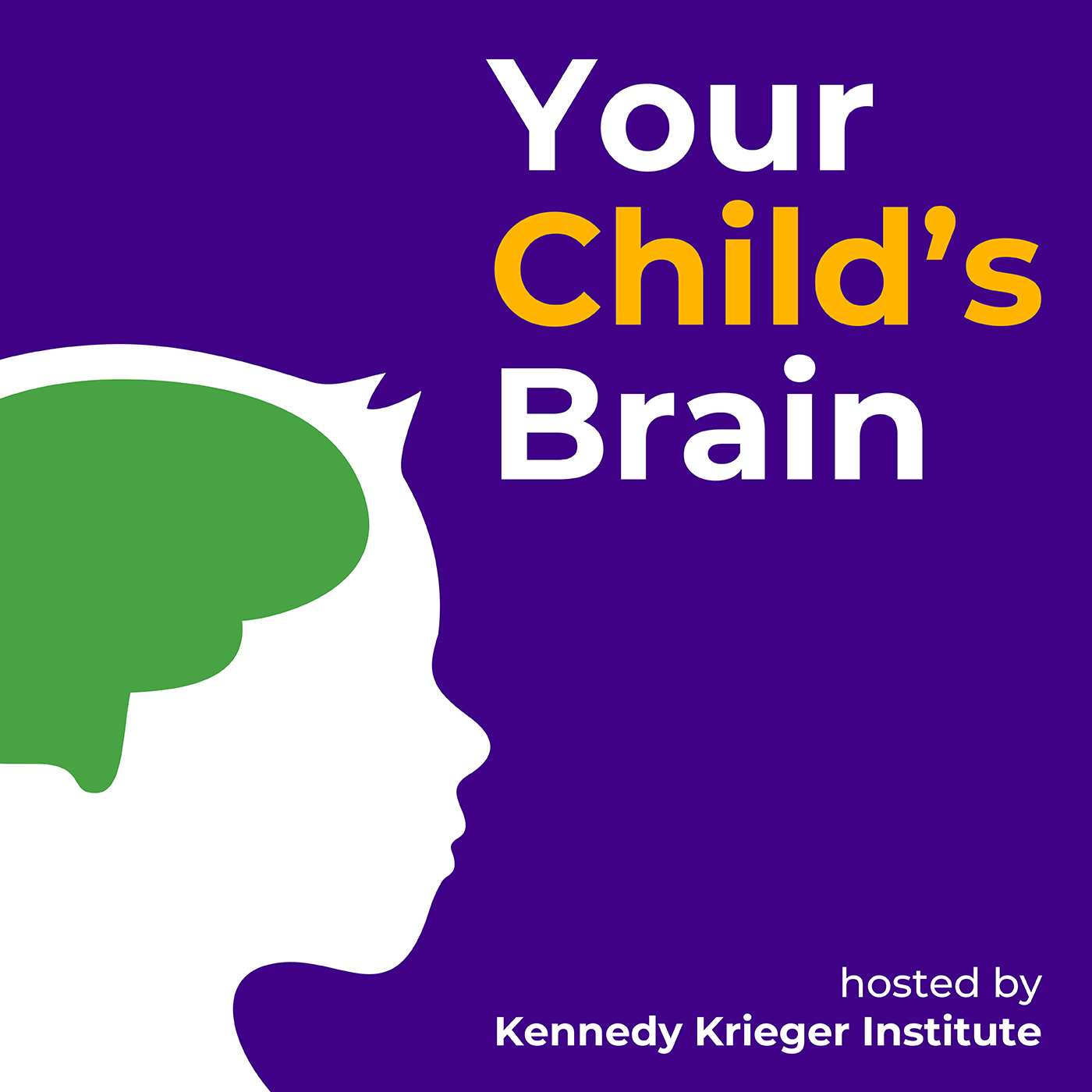
The Post Secondary Transition Podcast
A podcast focused on the ins and outs (and everything in between) of the secondary transition process for families of students with disabilities! Hosts Meghan (Smallwood) and Patrick (Cadigan) serve as supportive guides, leading families step-by-step up each rung of the transition ladder.
Also check out our parent website: https://www.postsecondarytransition.com
The Post Secondary Transition Podcast
063. Empowered Beginnings Pt. 4 - Senior Year(+)
This week, hosts Meghan (Smallwood) and Patrick (Cadigan) conclude a series of discussions charting transition through school years. For senior year, they differentiate between diploma-bound students and those on a certificate track. Key points include finalizing student-centered transition plans, participating in transition meetings, and ensuring students are aware of their accommodations and supports. They also stress the importance of building a support network and self-advocacy skills. Join the conversation!
Episode Keywords:
senior year transition, diploma bound, certificate track, student centered plan, transition meetings, financial aid, FAFSA, standardized tests, college applications, scholarships, disability support, employment preparation, support network, self-advocacy, at-home folder
Links:
Certificate Track (page)
Diploma Track (page)
Guardianship (page)
Guardianship Alternatives (page)
Past Discussions:
SSI (link)
Guardianship (link)
Exit Year (link)
Empowered Beginnings Pt. 1 (link)
Empowered Beginnings Pt. 2 (link)
Empowered Beginnings Pt. 3 (link)
Supported Decision Making_Full Discussion (link)
To download a copy of a transcript for this episode or any of our previous conversations, click here.
Also visit our Podcast webpage to find links to all of our other discussions; go to www.p2transition.com.
Additional information about post-secondary transition can be found at our website.
The Post-Secondary Transition Podcast Facebook page.
Visit our YouTube Channel to find additional video resources.
Intro/Outro music by AudioCoffee from Pixabay.
Transition music by Joseph McDade from Transistor.
Meghan, welcome. This is the Post Secondary Transition podcast where we have conversations around the ins and outs and everything in between of the transition process for families of students with disabilities. I'm one of the hosts. My name is Meghan Smallwood, and I am a public school transition coordinator. And as always, I have my co-host with me.
Patrick Cadigan:My name is Patrick Cadigan. I am also a public school transition coordinator, all right, so it took us a while to finally get here, but we are here as a refresh, we had started a little bit of a series, if you will, that we called empowered beginnings, and it walks families through the transition process as their students are going through school. So we started in freshman year, and then we did sophomore year, junior year, but now here we are. It's funny. It's still appropriate to call it empowered beginnings, but we're at the end. This is senior year, and when Meghan and I offline were talking about this, we decided that again, we're going to kind of break this down and that we have our diploma bound friends, which is to say those students who will graduate with a high school diploma, and then we have what in where we are is considered certificate track, in other words, students who will not graduate with a diploma, but they will receive a certificate of completion. So we will start the conversation talking about our diploma bound friends, and then we will transition to talk about our certificate track, friends. But keep in mind that in many instances, a lot of what we will be discussing can be interchangeable.
Meghan Smallwood:You took the words right out of my mouth, Patrick, because I was just going to say sometimes you may start on one track, but it's good to be knowledgeable and informed about both of them, because the end result may be a different track, which is perfectly okay, depending on what your student's path is, and I'll get to it in a second, but you may realize that there's not enough time to meet all of those graduation requirements, starting with you know that student centered Transition Plan, which we work so hard through High School to come up with some interests and areas they want to explore, to make those final decisions about what they want to do when they grow up after they graduate. So having some decisions about that post secondary education, if that's where they're going, vocational training, employment, or whatever other transition goal they may have, you definitely want your student to start looking at them, if they haven't yet enrolling in them, and kind of coming up with an idea of where they want to go. Like I mentioned with those credits, you want to be checking in with Student Services and your your school's guidance counselor to see if your student is on track to meet the requirements, and if there's any anything that needs to be adjusted. I know we've had discussions before about it may take a student more than four years to complete graduation requirements, and by law that students allowed to stay in the school system till 21 so it's okay if it takes five years or six years. It's individualized, but sometimes it does happen where you know that that gap is closing, and the student is approaching 21 and they still have too many credits in order to get that diploma. So they look at another track, and like Patrick said, it's interchangeable, and you know, you just head down that one.
Patrick Cadigan:Yep. So we have finalizing that student student centered Transition Plan, coordinating with Student Services. And the next thing that we're going to throw out there is you want to be participating in the transition meeting or meetings as your student is moving through.
Meghan Smallwood:And it's so important that the student is present for these meetings, but most importantly, that last meeting, so that they're hearing about all this information that we've tried to explain to them as they get ready to leave us and go into that post secondary world. They're aware of their accommodations. They know what kind of supports they have in place. That way, they can actually apply them to their post secondary goals and be prepared to advocate for themselves. You want to make sure that they are involved, and you're involved in transition activities and programs that will help prepare them. If there's job fairs being offered, which I know in our county we have, you want to attend any kind of workshop for vocational training, independent light, living skills, I feel like senior year a lot of times I'll hear from parents, you know, they really still need to work on those executive functioning skills, looking at resources for that to help prepare them for the next step is is a huge thing as well.
Patrick Cadigan:And it goes without saying, and I know that this came up in our last discussion, but. Because what we're going to throw out there completing financial aid applications, but that is probably one of the more stressful things, and something the parents are thinking about constantly. But again, senior year, this is definitely a good time to focus on that.
Meghan Smallwood:Yeah and I feel like it even overwhelms me Just hearing that word. And I don't have a child going to college or post secondary level yet, but just that word, FAFSA. Make sure they're using the resources. I know our student services are a great help with that. There's a number of workshops offered webinars of whole bunch of people there that can help you through if you have any questions, because it is daunting, make sure to explore scholarships, any grants or loans that might be available to specifically for students with disabilities. There are a number of them out there, and they they definitely should be looked at.
Patrick Cadigan:One of the other things that's coming up constantly requesting accommodations for standardized tests.
Meghan Smallwood:Yeah and I mean that goes back to that necessary documentation, which the student will need when they leave us too, but it is important to get those in place in a timely manner so that they have them to take these tests, and it's one less thing they have to worry about.
Patrick Cadigan:And I know that this is going to sound like common sense, but again, this is with everything that's just coming out at families are coming to the families coming to the students, making sure the credits are being done, blah, blah, blah. Make sure to complete those college applications.
Meghan Smallwood:Make sure you have all the necessary parts. You know, the transcripts, the letters of recommendation. Find out if the college you're applying to requires an essay. Make sure you have them all. Find out when your deadlines are. I know Student Services does a great job of posting them, so just be aware.
Patrick Cadigan:And be, also being aware one of the other things again that it ties in very strongly with this, and Meghan's already mentioned it before, but applying for scholarships and grants, and part of that is also being aware of what scholarships and what grants are out there and available.
Meghan Smallwood:Yeah, and make sure to stay up on all the graduation ceremonies. I mean, this is a big deal. You've you've achieved a lot. You want to be able to celebrate and enjoy it. So pay attention to the number of school emails that are coming out about ordering cap and gown, attending rehearsals, any kind of arrangements, I know that they start early. So just being, being aware of that information.
Patrick Cadigan:And playing off of, again because I'm literally in the middle of this, as we are having this discussion, being aware of and visiting with disability support service offices at any of the colleges that you are looking at or considering.
Meghan Smallwood:That's something I always talk to my juniors. When I meet with them and they start saying that they're visiting colleges. I always tell them, while you're on campus, just be aware where the Disability Support Services Office is. If you have the time and you want to stop in or see if you can just make an appointment to meet with someone. It's great to visit and just see what they what they can tell you what they have to offer.
Patrick Cadigan:Now one thing though, that I will throw out there, diverging a little bit from the college discussion, there are students who choose to forego college, right that they want to just get immediate employment. So one of the things that we always throw out there, and this goes back to some of the teachers that we work with in our school system, is preparing for interviews, resume preparation, things of that nature.
Meghan Smallwood:Yeah and I know within our school system that is covered, it's one of the requirements for graduation to participate in something where they do build a resume and do a mock interview. But there are additional classes that can be taken. There are different agencies or nonprofits out there that offer opportunities to practice this as well. It's definitely a great thing to to look into a little bit before you actually have to do it for the real time.
Patrick Cadigan:And again with everything that's coming at you. One of the things that we have always communicated in all three of these conversations is adding to your support network. This is not necessarily something that you can do on your own, although it probably feels like you do it on your own sometimes, but add to that support network of of yours.
Meghan Smallwood:Yeah, and kind of similarly to that, you want to make sure that you're in touch with those community resources as well. If you are accessing support services like vocational rehabilitation agencies, you want to make sure you have your applications complete, checking in with them about anything you know, steps moving forward that need to be done, as well as accessing any of their counseling and academic assistance that offerings that they have.
Patrick Cadigan:Yeah, so you have adding to your support network, finalizing those community resources. Big thing, Meghan, you already brought it up before. But I want to throw it out there again, building so, continuing to build self advocacy skills.
Meghan Smallwood:Oh my gosh, that's the number one thing I think, that we stress, especially in those senior meetings like they the colleges, don't want to hear from mom and dad. They just want the check to pay for the classes. They want to hear from the student advocating for what they need and what they're going to use as accommodations to access their classes there.
Patrick Cadigan:One of the things. And again, Meghan, you kind of alluded to this, but I do want to throw out there to take a moment and celebrate, no matter how small or big, celebrate the achievements.
Meghan Smallwood:No matter how long it took, either it doesn't matter. In the grand scheme of things, you did it. That's the important part. You stuck with it.
Patrick Cadigan:I was just thinking about this the other day, how challenging, how difficult high school can be. Now, don't get me wrong, as somebody who went through undergrad and a Master's course, but just that, I don't know, just thinking back to all those expectations, I suppose I've been thinking about it quite a bit, because my son is now at the middle school level, and he is having a transition of his own from, you know, elementary to middle and, you know, exploring and discovering. You know, all the differences to that. But man, when I just think back to high school, sometimes I'm like "ohh."
Meghan Smallwood:I was thinking about that too, because my son will make in that making that transition next year to middle school. And I'm like, and I think of the high schoolers too, like I see all the activities that they're a part of and the great things they're doing, and I just look at them, and I'm like, my goodness, the the management skills you have to pull this off with the workload I know that they all have now. It's it's impressive. I think everyone that you know gets through high school deserves that recognition.
Patrick Cadigan:Yes, indeed; finally, finall-not-finally, but one of the things that we have continued to advocate for, speak to creating and keeping what we refer to as an at home folder, that folder that has copies of past or current, and even past IEPs if you need them, related assessments, that includes psychological occupational therapy, physical therapy, just if you can, if it is an assessment and it was done, you're going to want to want to hold on to it, all that relevant information.
Meghan Smallwood:So important, especially if you are going to be using Disability Support Services the college level, they will be looking for those assessments.
Patrick Cadigan:It's almost like we've broken down senior year over the course of an entire year in a matter of minutes. Yeah, yeah, oh, we've got it. We're everything is fine, okay, yeah, but like we said, now what we're going to do is we're going to transition that was covering for our diploma bound friends, but now let's talk about our certificate track friends, or the friends of ours who are not going to graduate with a diploma. One of the first things as you were preparing for how do you want to introduce this? Meghan? I never know how to how to broach this topic.
Meghan Smallwood:I think, well, you know, and we've talked a lot about this, but I think as you approach that final year, that exit, year before your your young adult leaves the school system, we know that there's a lot of things that we're going to mention that have been ongoing, but it's basically the time to kind of wrap it all up. And, you know, get ready for that next, that next step. So you know, your coordinator of community services, your DDA coordinator, that's someone that you've been talking to, hopefully more more regularly than you had in the past, but now is the time that you're really going to want to be hearing from them and meeting with them, because they really help to understand the needs of your student after exit and the services that they could access.
Patrick Cadigan:Yeah, and it's funny, because now that you mentioned we have had so many discussions that sometimes I even forget about those things that we talked and we have had a lengthy discussion about exit year and what that can look like. So check out the link in the show notes, because we're going to want to make sure that that you can go back and also listen to that valuable discussion. The next thing we're going to throw out there, and again, this is one of those things I'm right in the middle of this with one of my families applying for Supplemental Security Income.
Meghan Smallwood:Yep, and it's SSI, not SSDI, because that has come up a number of times lately. I know it's confusing and it seems a little backwards, but SSI is what your individual will be eligible for at 18. SSDI is for someone who had been working and became disabled and can no longer work. So SSI is the focus, and that's that financial help from the government that an individual, once they turn 18 that has a long term disability can receive and the money. And we've gone into this in a number number of other episodes. But it can help provide money for basic needs, just like food, rents clothing, just to make sure that those essential expenses are paid for.
Patrick Cadigan:If you belong to or you follow us on our Facebook page. It's interesting how, in parallel, sometimes things happen and that kind of jogs our memory. And we're like, Hey, we should probably mention that. And so we bring it up on our Facebook page, check out our the link in the show notes, and we recently had posted on Facebook about the SSI conversation that we have had in the past. Because, again, this is something that we're like actively going through with our families as it's being done. So hence the reason, if you see a post on Facebook, most likely something happened that jogged our memory.
Meghan Smallwood:So at this time, you really want to be visiting those adult agencies and different providers that are available that you could potentially use the DDA funding for after your individual leaves the school system. I know we've talked about that before as well, and we have a number of resources available on our website for them, and I think a list of questions that you can ask the different providers based off of what you're looking for.
Patrick Cadigan:Yeah, it is a good, practical, working list of those questions that you can ask. And again, this goes without saying, because we have mentioned before about our home folder, but gathering those school records this is essential, especially when it comes to DDA developmental disabilities or VR services, if that's something that you're utilizing, but you are going to need those records for eligibility determinations.
Meghan Smallwood:Yeah, those school records, this is really the time, and hopefully there's been some planning ahead of time and back mapping done by the school to help you with that, because especially for DDA purposes, they will really want a psychological evaluation within the last three years to help while you apply for the waiver, additional evaluations are helpful, like the education, speech, occupational therapy or physical therapy, as long in addition a behavior plan or a functional behavioral assessment, those can help too when you are doing all of the paperwork for the waiver, but that psychological evaluation is very, very important.
Patrick Cadigan:One of the other things, and again, this is something that we've had a discussion around. So we are going to throw this out there, but it comes with a big asterisk, considering medical power of attorney for your student. And this kind of delves into like guardianship, or those alternatives to guardianship. So in no way we've said it before. This is in no way legal advice. However, it is something to think about and consider.
Meghan Smallwood:Yeah we really have gone into a lot of detail about this, and I know we had some good conversations about the alternatives that are available, but it's definitely something if you haven't thought of yet, to start thinking about. And you know, I think advice from many people we've talked to is to look at the least restrictive option before heading to the most restrictive option, which would be guardianship. But you know, it's based off of what works best for your family and what fits your needs the best. So we have a bunch of resources, again, on our website for both types. So make sure that, if you haven't considered it yet, it's something that you are considering.
Patrick Cadigan:And again, something that we've talked about before, but we're going to reiterate again as you are preparing that exit building into and adding to that support network.
Meghan Smallwood:Yeah, that circle of support is so key. I mean, I know when I talk to parents, and I try to talk to them about future planning is it's an overwhelming and scary topic to talk about, what happens when you know you're not here anymore and your child with a disability still is, and you're the one who's been doing everything for them. So as scary as it is, as much of other things you have on your plate at the moment, it is something to keep in the back of your mind, especially as you're making these decisions for those future plans, keep those people around you, close to you, in the loop, ask for their advice. Just make them aware of what's going on.
Patrick Cadigan:You know, again, it's so weird that, you know, we basically come up with this list of things that we want people to do, and it it in no way addresses the totality or the enormity of what it is that's happening. But "Boom" there you go.
Meghan Smallwood:Yeah, I mean...
Patrick Cadigan:In a list.
Meghan Smallwood:...in, in a nutshell, right?
Patrick Cadigan:Yeah, there's your list. Now we will throw out there that we've made many references to, going back to our website at www.postsecondarytransition.com for both of these lists, for our certificate track friends and for our diploma bound friends. If you go to the website on the home page at the very top, you will see links to buttons for home what's in an IEP and where we found these lists is in our where to start button. So if you just hover over that, it's going to give you a secondary menu. You'll see our start. Here we have certificate track, diploma track, and it even includes transition tools, or tools that you will use along that journey. So again, go to the website. Check it out. This can be super useful. Sounds good, all right. Well, there we finally finished out. So that's really good. And then our next discussion, we're we've been building towards this for a while. We're going to kind of change lanes a little bit. We had a really good conversation with a creator of content on YouTube, and he gave us just some what practical working advice for those friends and students who are thinking that that may be something that they might want to consider, so...
Meghan Smallwood:Yeah, it's like a career spotlight.
Patrick Cadigan:Yeah, yeah, and it was, it was a really good conversation. I was glad...
Meghan Smallwood:Yeah.
Patrick Cadigan:...that we were able to have it. So, all right, Miss Meghan. I think that we can sign this one off.
Meghan Smallwood:Awesome. Thanks for joining everyone.
Patrick Cadigan:You'll find all the links to the information from our conversations in our show notes. We would love for the information from this and all our other discussions to reach as many families as possible, and we need your help to do that. You can find our conversations at WWW dot p2 transition.com, like, follow and share out the podcast. Our conversations are posted to all the major platforms, including Apple podcasts, Spotify, YouTube music, and that's just naming a few. So please share and share often.
Meghan Smallwood:Please also check out our YouTube channel. Now that we've done some of the legwork for you by curating videos of topics that revolve around transition, we have playlists for guardianship alternatives to guardianship ABLE accounts, and there's more to come. So please be sure to subscribe there as well. And then finally, check out our website, which is full of information and links to resources around the transition process. So open your web browser of choice and surf to www.postsecondarytransition.com and we thank you so much for the time you spent with us, and look forward to talking again soon.


